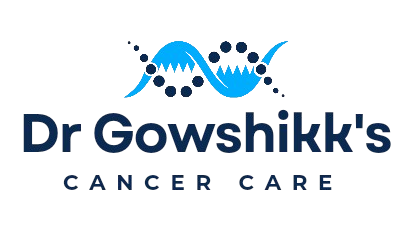Patient Education and Counseling

Patient Education and Counseling are essential components of effective healthcare, especially in oncology, where understanding complex medical information, treatment options, and coping strategies can significantly influence treatment adherence, decision-making, and overall well-being. In the context of cancer care, these practices aim to empower patients, reduce anxiety, and improve outcomes by providing clear, compassionate guidance about their diagnosis, treatment options, and the emotional and psychological challenges of living with cancer.
Key Aspects of Patient Education in Oncology:
Understanding the Diagnosis: Cancer patients need to fully understand their diagnosis, including the type of cancer, its stage, and its potential impact on their health. Patient education involves providing accurate, understandable information about the disease, its progression, and how it will be treated. Visual aids, diagrams, and written materials can help make complex medical terms and concepts more accessible.
Treatment Options and Goals: Clear communication about available treatment options, such as surgery, chemotherapy, radiation, targeted therapy, and immunotherapy, is crucial for informed decision-making. Patients should understand not only the expected benefits of each treatment but also the potential side effects, risks, and time commitments involved. This helps them make choices that align with their personal values and goals of care.
Managing Side Effects: Cancer treatments often come with side effects such as nausea, fatigue, pain, and hair loss. Patient education focuses on helping patients understand these side effects, how to manage them, and when to seek help. Providing resources like support groups, lifestyle tips, and strategies for maintaining daily routines during treatment can reduce distress and enhance quality of life.
Preventive Care and Self-Care: Educating patients about the importance of self-care, including maintaining proper nutrition, staying physically active within their limits, and managing emotional well-being, is an important part of their overall care plan. Patients should also be educated about regular screening and follow-up care after treatment to monitor for recurrence.
Key Aspects of Counseling in Oncology:
Emotional and Psychological Support: A cancer diagnosis can cause overwhelming emotional distress, including fear, anxiety, depression, and grief. Counseling provides patients with a safe space to express their emotions and concerns. Support can be offered through individual counseling, family therapy, or group therapy, helping patients and their families navigate the emotional challenges of cancer treatment.
Coping Mechanisms: Patients are guided to develop healthy coping strategies for managing stress, pain, and uncertainty during cancer treatment. Cognitive-behavioral therapy (CBT), mindfulness, relaxation techniques, and journaling are often recommended to help patients maintain emotional balance. Counseling also helps patients prepare for potential changes in their daily life, body image, and relationships.
Decision-Making Support: Patients may be faced with difficult decisions, such as choosing between treatment options, deciding whether to pursue aggressive therapies, or exploring palliative care options. Cancer counseling focuses on helping patients weigh their options, consider their quality of life, and make decisions that align with their personal goals, values, and beliefs.
Support for Families and Caregivers: Cancer patients’ families and caregivers often face emotional challenges as well. Counseling can provide them with the tools to offer practical support, communicate effectively with the patient, and manage their own feelings of stress or guilt. Support services can also help family members navigate the caregiving role and cope with the burden of watching a loved one undergo treatment.
The Role of the Healthcare Team in Patient Education and Counseling:
The oncology care team, including oncologists, nurses, social workers, psychologists, dietitians, and palliative care specialists, all play a vital role in patient education and counseling. They should collaborate to ensure consistent and clear communication throughout the treatment process.
- Oncologists provide detailed information about the disease and treatment.
- Nurses offer ongoing support and guide patients through the practical aspects of treatment.
- Social Workers help with emotional, social, and financial issues, including connecting patients with community resources.
- Dietitians educate on nutrition and managing dietary needs during treatment.
- Psychologists and Counselors provide emotional support and teach coping strategies for both the patient and their family.
Importance of Cultural Sensitivity:
Cancer care must be sensitive to the cultural, spiritual, and personal beliefs of the patient and their family. It is essential that education and counseling are delivered in a way that respects these values, whether through language support, considering traditional healing practices, or addressing cultural attitudes toward illness and death.
Technology and Patient Education:
Advancements in technology have made patient education more accessible. Online resources, educational videos, apps, and telemedicine consultations provide patients with additional ways to access information, ask questions, and engage in their care. Virtual support groups and webinars can also offer emotional support and educational resources for both patients and their caregivers.
Conclusion:
Patient education and counseling are cornerstones of effective oncology care, ensuring that patients are informed, emotionally supported, and empowered to make decisions that best meet their needs and preferences. By addressing the physical, emotional, and psychological aspects of cancer treatment, healthcare providers can improve treatment adherence, enhance outcomes, and provide patients and their families with the tools they need to navigate the cancer journey with confidence and resilience.
